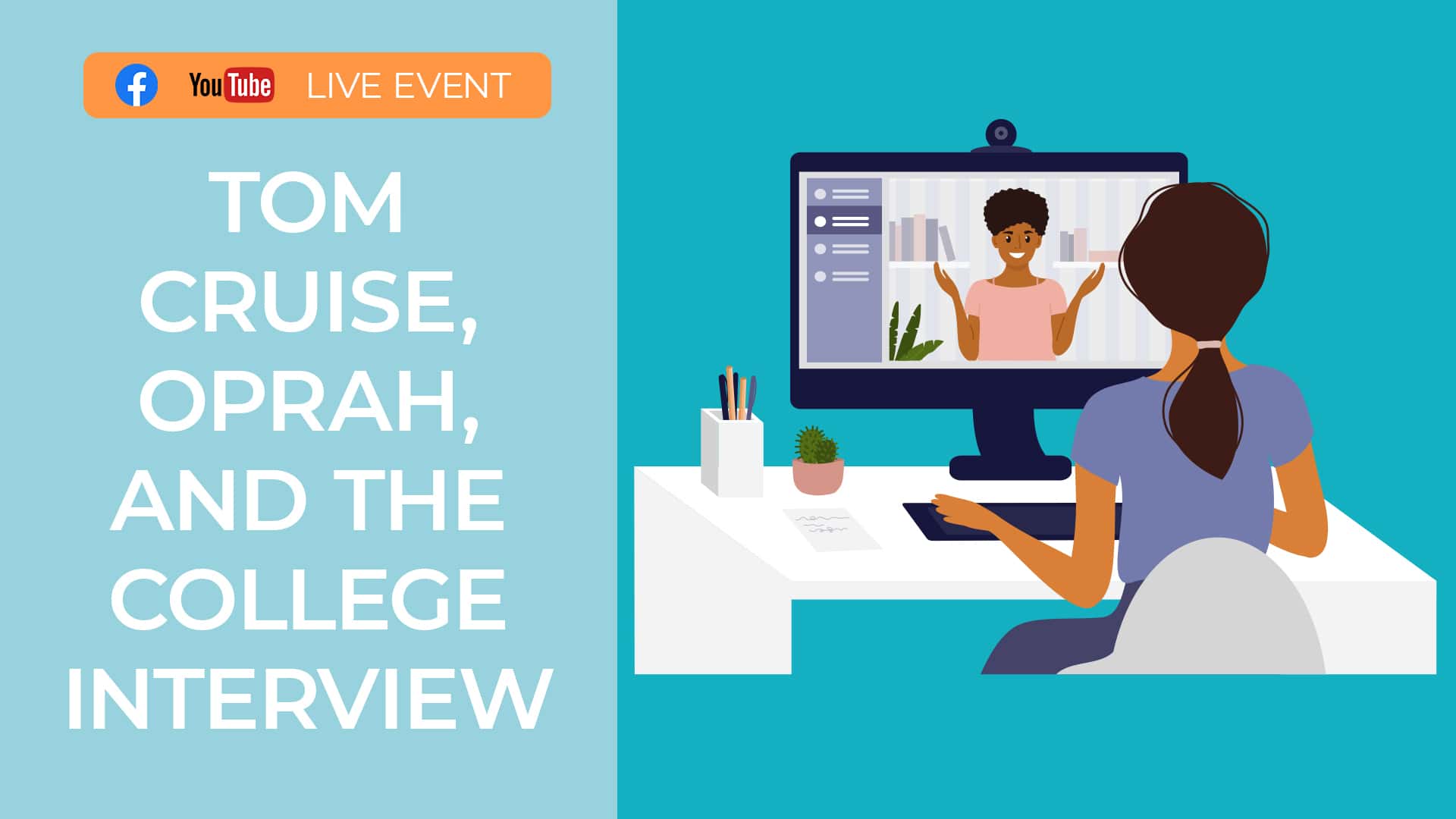
Beyond testing, college visits and list-building, one of the biggest hurdles for students during the application process is more broad: learning to talk about yourself. Even as adults, when asked about the experiences that have shaped you or what impact you want to have on the world, it’s easy to freeze up, to think that you don’t have anything valuable to say, or that what you have to say isn’t perfect.
In light of the recent SCOTUS decision and admissions changes on the horizon, admissions offices will need to put heavier emphasis on the student’s “self-representation” to better understand their experiences, background and personality. In other words, each student’s understanding of who they are and their ability to show that self will make an impact on their admissions outcomes. And one way that valuable insight can shine through is in the college interview.
While not all colleges offer interviews, they can be exciting moments to really show colleges who you are. Though they can feel scary, with preparation and authenticity, you can not only ace the interview, but even enjoy the process and learn more about the college while you’re at it!
So, where to start?
1. Figure out if your schools even offer interviews.
Not all colleges offer interviews as part of their admissions process. The use of interviews often depends on the college’s specific policies and resources. Here’s some guiding information:
- Selective Colleges: Many highly selective colleges and universities offer interviews and/or pre-recorded video introductions as an optional component of the application process. When they’re live, interviews are typically conducted by alumni volunteers or admissions staff. However, they are often not required, and students are not penalized for not participating.
- Large, Non-Selective Colleges: Less selective or open-enrollment colleges and universities may not offer interviews at all. They may rely solely on other factors such as standardized test scores, high school grades, and application essays to make admissions decisions.
- Specialized Programs: Some colleges may offer interviews specifically for certain programs or scholarships. For example, if you’re applying to a specific honors program or scholarship, you may be invited to interview as part of that process.
- Virtual Interviews: In recent years, many colleges have offered virtual interviews as an alternative to in-person interviews, which became more prevalent due to the COVID-19 pandemic. These virtual interviews are typically conducted via video conference platforms (so plan to practice on Zoom!).
- International Applicants: For international students, in-person interviews may be less common due to logistical challenges. However, most colleges offer virtual interviews or rely on other means to assess international applicants.
The bottom line is that interviews can add an incredibly valuable layer to your college candidacy, and it’s essential to check each college’s admissions website or contact their admissions office directly to determine whether interviews are offered. And if they are, read on for our pro-tips!
2. Sign up for your interviews (early!)
Start doing your research on which schools offer interviews during the summer, which is when you’re usually able to begin scheduling or requesting one. If your schools offer interviews, you don’t want to miss the boat! So start early and consider:
- Checking the College’s Website: Start by visiting the admissions page of the college or university you are interested in. Look for information about their interview process, including when and how to sign up.
- Deadlines: Many colleges have application deadlines, and the interview sign-up process may have its own set of deadlines. Be sure to check for any specific dates provided by the college.
- Early Decision/Early Action: If you are applying through an Early Decision or Early Action application plan, interview slots may fill up quickly. Sign up for an interview well in advance, sometimes even before the application deadline.
- Contact the Admissions Office: If you have specific questions about whether interviews are offered or when to sign up for an interview, it’s a good idea to contact the admissions office directly. They can provide you with the most up-to-date information and guidance.
3. Practice!
Once you’re all signed up, the nerves might hit. Preparation can boost your confidence during the interview and help you get clear about what you want to share. Plan a few mock interviews with friends or family members to test out your responses and become more comfortable with the process. Practice sessions (with specific schools in mind) can iron out your nerves and prepare you for common interview questions like these:
- Tell me about yourself!
- What made you interested in X college? What made you interested in Y major?
- How would your friends describe you in 3 words?
- What are your strengths and weaknesses as a student?
- If you could relive one moment in high school, what would it be?
- Recommend a book to me.
- Where do you hope to be in 10 years?
- What’s something that brings you joy?
- Who’s someone you admire?
- Do you have any questions for me?
The first question is the most important (and usually the most difficult to answer, even though it seems simple), because it will steer the rest of the conversation. For example, if you say “I’m a baseball player…”, the interviewer might follow up and ask about your favorite moment from baseball, or a lesson you’ve learned through playing. If you say “I started my education in a Spanish immersion program…”, the next questions might be “Wow–was that hard?” or “When was the last time you got to chat with a native speaker?”
Though of course you want to be honest and authentic, think through what you most want colleges to know about you, and start there.
4. Embrace your authentic self and remember that an interview is just a conversation.
If we become a broken record by the end of application season that’s okay. We’ll keep saying it: You. Are. Enough. In the midst of interview preparation, it’s important to remember this.
Your life experiences, accomplishments, and even your struggles are all valid and valuable components of your story. Authenticity in your responses and demeanor will make a lasting impression on interviewers. Why? Because colleges are looking for real, passionate individuals who will contribute to their community–so be yourself and speak from your heart.
No need to memorize answers to the questions above – your practice sessions should help get “who you are” to the tip of your tongue and help you not freeze up in the interview. And if you do, don’t worry. Colleges know that you are a high school student. Embrace that!
Good luck!
We know it’s a busy time, but remember that the skills that you gain by practicing for an interview will surely make you more confident with Admissions Officers and as a future student, so lean into the task and make time to shine!
And if you need more help, we’re here. With our students, we start the conversation about who you are, what you care about, and why best right-fit colleges align with those values early, so by the time fall interviews roll around, students are accustomed to talking about themselves. We’d love to support your child’s process of self-discovery and articulation, too.
Click here to schedule a Free Student Success Call to discuss the qualities about your student that colleges will be excited to hear about in applications, essays, and, of course, the interview.

